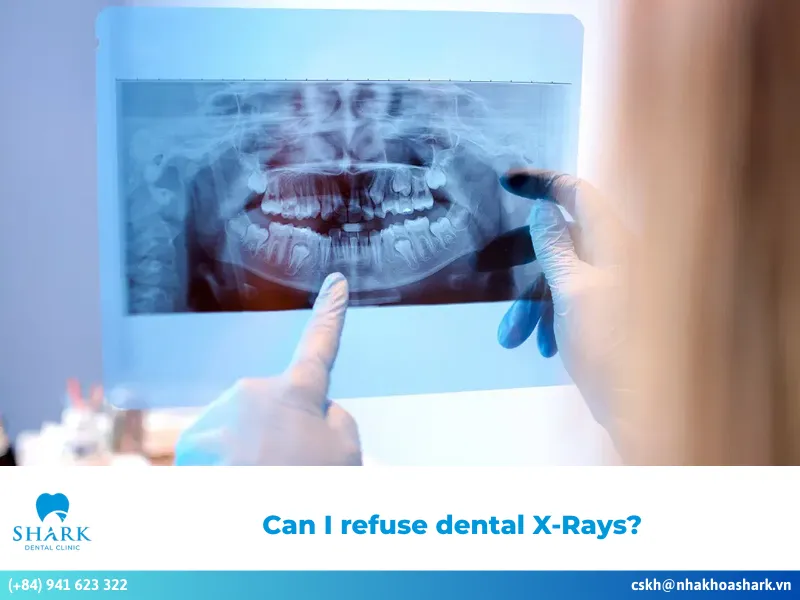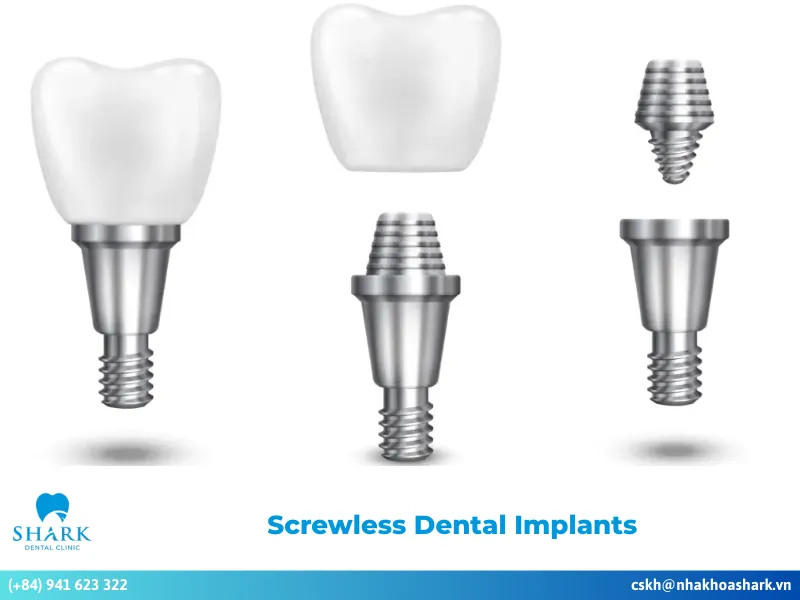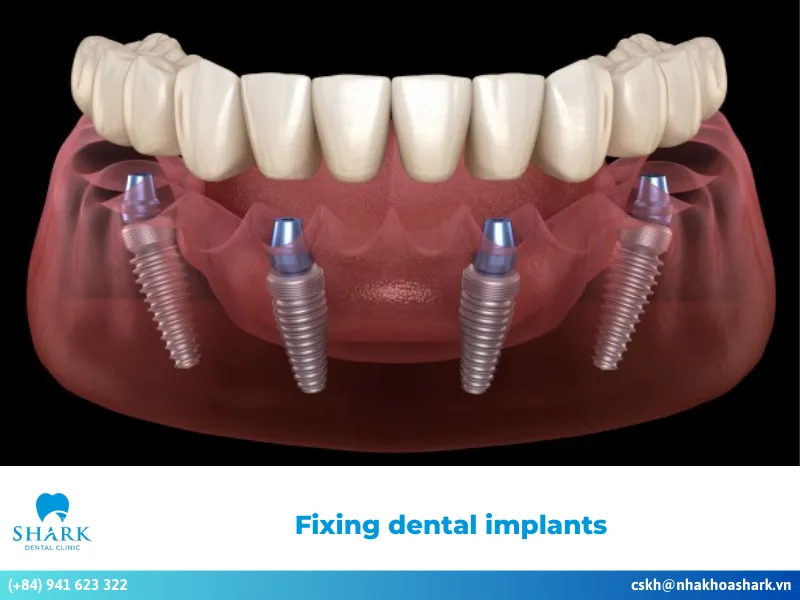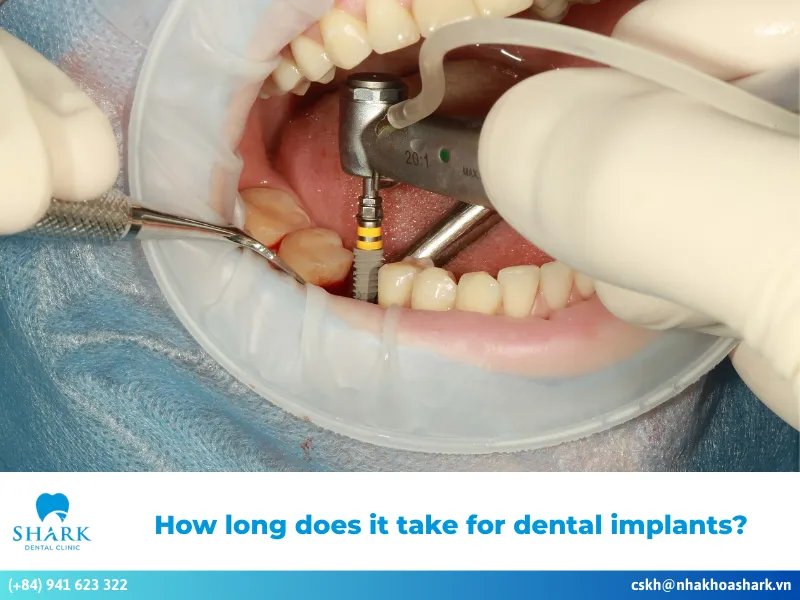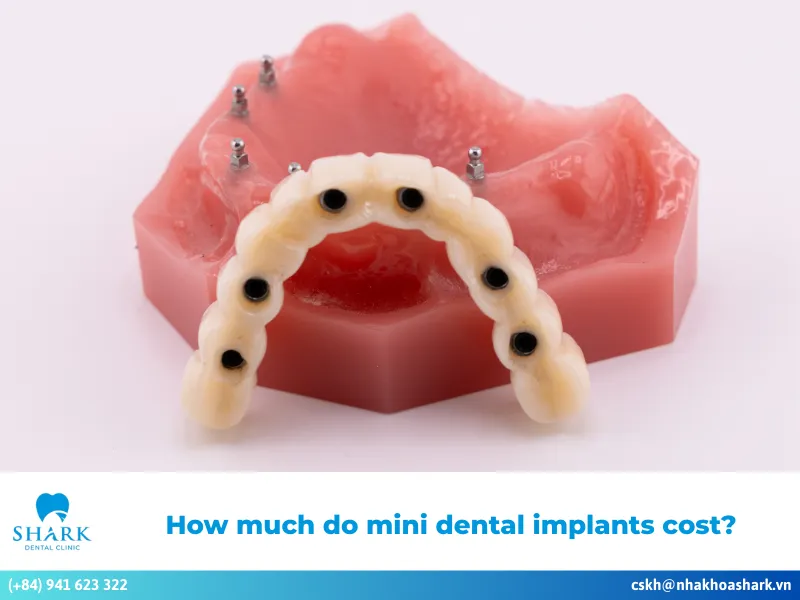A calcified root canal can cause pain and swelling, leading to significant discomfort and interference with daily life. This condition is one of the main reasons teeth become affected over time. Early detection of symptoms is essential to ensure timely and effective treatment. Read on to learn about the causes, signs, and best ways to manage this issue!
What is calcified root canal?
A calcified root canal occurs when calcium deposits accumulate within the tooth’s root canal, leading to narrowing, hardening, or blockage. This condition makes it challenging for dentists to access and clean the canal effectively during root canal treatment.
Calcification can result from various factors, including tooth trauma, dental diseases, aging, or other contributing elements. Over time, the accumulation of calcium causes the canal space to shrink, making the tooth more rigid and difficult to treat.
A calcified root canal can significantly impact oral health and daily comfort. Therefore, identifying the cause and implementing safe and timely treatments are crucial to prevent further complications.
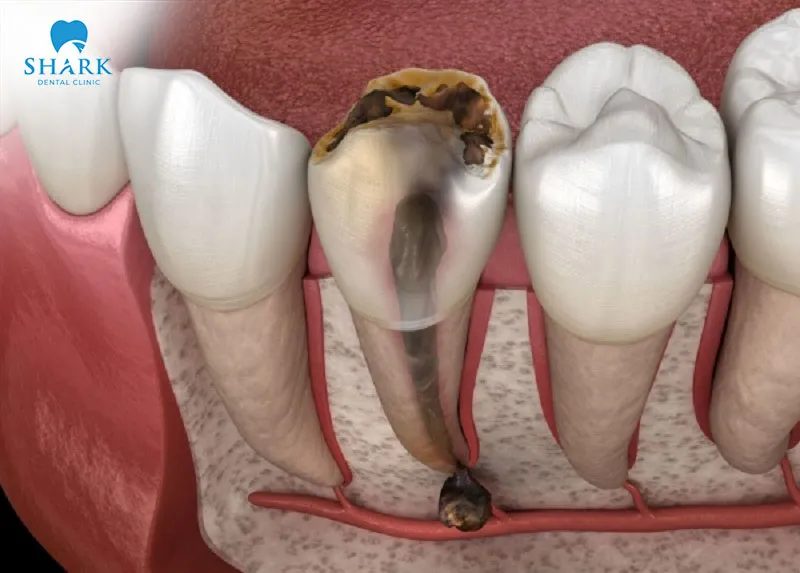
Calcified root canal symptoms
In many cases, the symptoms of a calcified root canal are not immediately apparent. The condition often progresses slowly and may first present as sensitivity to heat or cold, mild pain during chewing, gum swelling, or gradual tooth discoloration.
Common signs of a calcified root canal include:
- Persistent or intermittent tooth pain while chewing
- Dull, lingering aches that come and go over time
- Pain that may be localized or radiating, making it difficult to pinpoint the exact tooth
- Increased sensitivity to hot and cold foods or drinks
- Swollen or reddened gums that feel tender or sore
- Bad breath or unpleasant taste in the mouth
- Gradual tooth discoloration, with the tooth turning from white to yellow or brown due to changes in the pulp tissue

Calcified root canal causes
Calcification primarily arises from calcium buildup inside the pulp chamber, but several underlying factors can contribute to this condition:
- Aging: The likelihood of root canal calcification increases as we get older, which often correlates with a higher average number of root canals by age. Over time, the pulp chamber tends to shrink due to the continuous deposition of hard tissue, making treatment more complex for senior patients.
- Tooth decay (Cavities): Severe or recurrent cavities can cause the pulp to shrink as a protective response. This reduction in blood supply leads to the accumulation of calcified tissue, increasing the risk of infection and nerve damage.
- Trauma or injury: Physical trauma to the teeth, particularly from sports or facial impacts, can cause bleeding inside the pulp chamber. Over time, the body responds by depositing calcium in the affected area, resulting in calcification of the root canal.
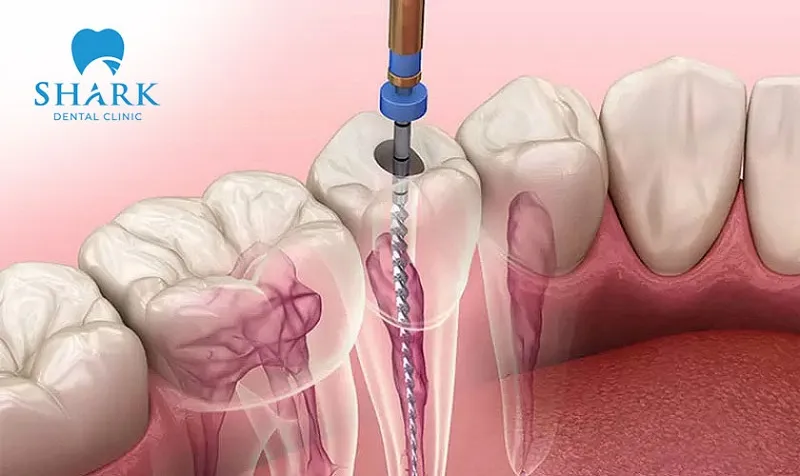
>>> See more: Root canal treatment in Vietnam
Treating a calcified root canal
If a calcified root canal is not treated promptly, it can lead to various serious complications that affect overall dental and oral health. Due to the hardened and narrowed canal, accessing and cleaning it requires advanced skills, precision, and specialized equipment to ensure both safety and effectiveness.
When dealing with a calcified root canal, it is essential to visit a reputable dental clinic for a thorough examination. Depending on the severity of the calcification, the dentist will determine the most appropriate and effective treatment plan.
- In mild cases of calcification, the dentist will typically monitor the condition and provide guidance on proper oral hygiene and preventive care to slow its progression and protect the tooth structure.
- For more severe cases, it is advisable to seek treatment from a specialized endodontist. The dentist will begin by taking X-rays to evaluate the tooth structure, determine the exact location and extent of calcification, and plan a precise treatment approach.

In cases of moderate to severe calcification, the dentist will typically take the following steps:
- Create a small access opening in the tooth to reach the affected canal.
- Use a dental microscope for improved visibility and precision.
- Apply ultrasonic micro-instruments to carefully remove calcium deposits and reopen the canal.
- Thoroughly clean and disinfect the treated area before performing root canal filling and sealing to prevent reinfection.
The entire procedure takes place in a sterile environment equipped with modern dental technology to ensure safety and accuracy. A team of experienced and highly trained dental specialists will handle the procedure to ensure both its success and the long-term stability of the treated tooth.
If you are experiencing signs of a calcified root canal or other root-related issues, contact Shark Dental Clinic. As one of Vietnam’s leading dental centers, Shark Dental offers advanced dental technology, highly skilled specialists, and safe, patient-centered treatment techniques. At Shark Dental Clinic, your concerns about root canal problems and other dental conditions will be addressed promptly and professionally, helping you restore both your oral health and confidence with complete peace of mind.
>>> See more: Root canal treatment costs in Ho Chi Minh City





